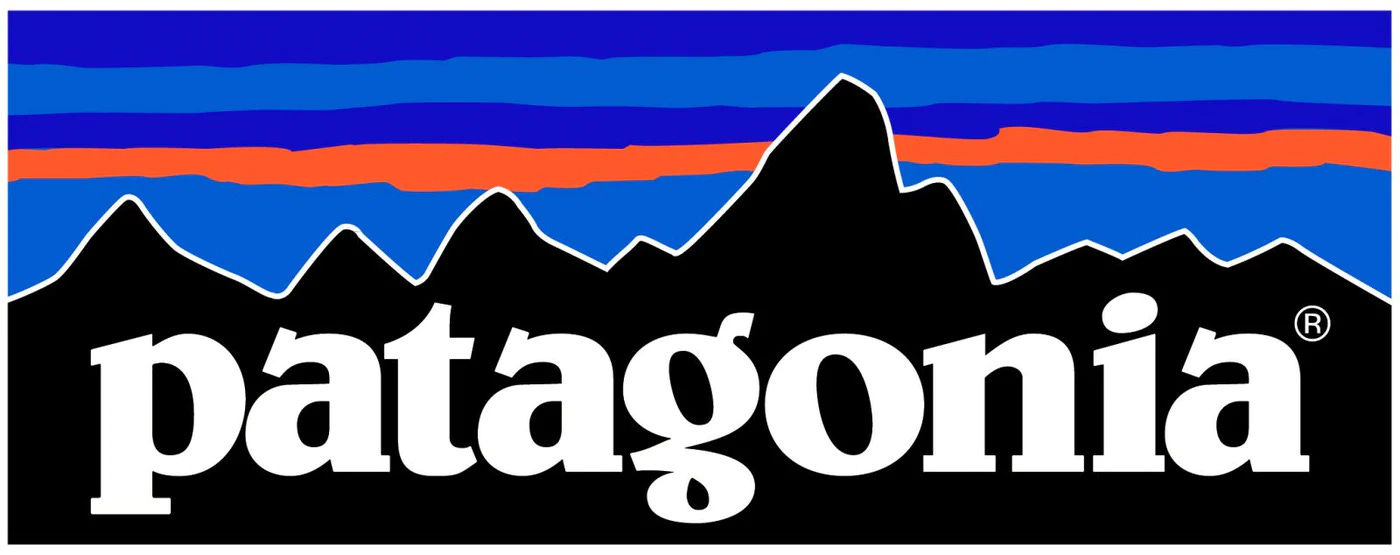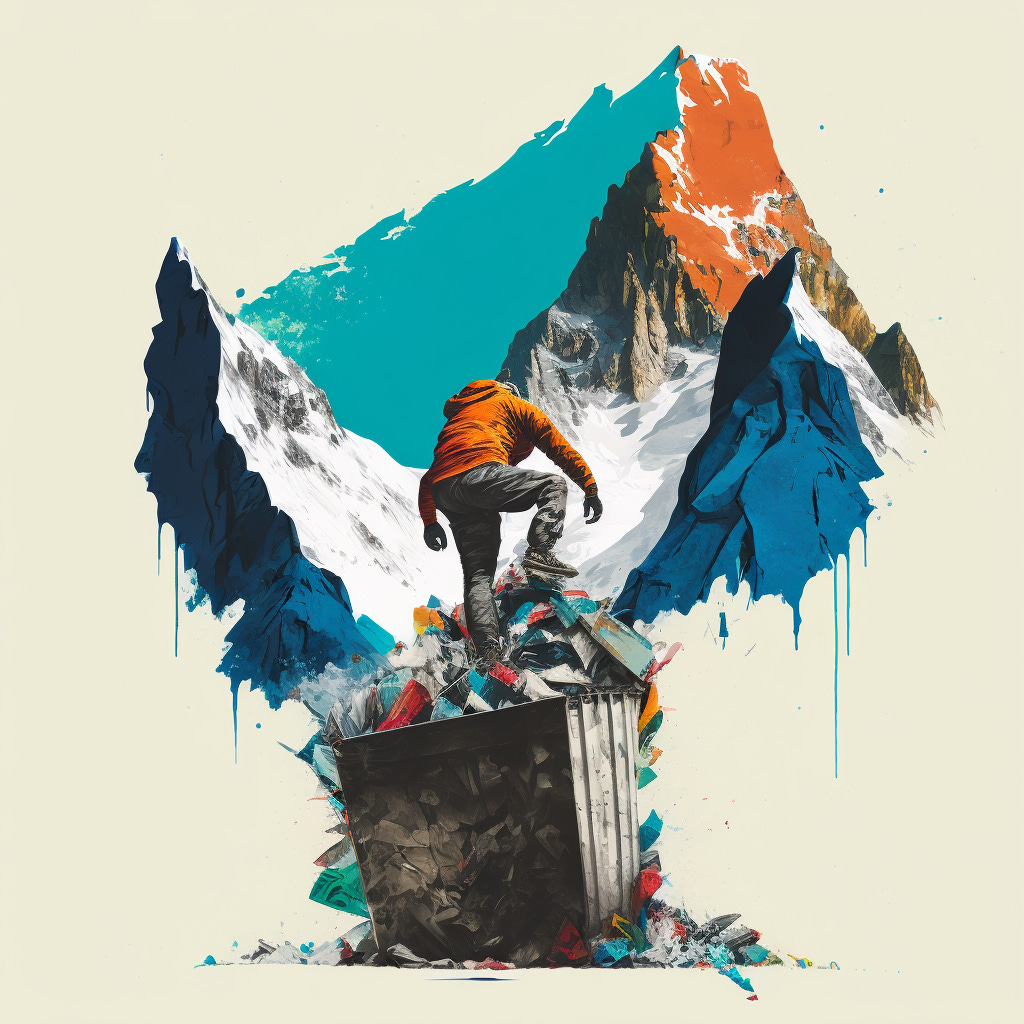FIELD NOTES | From Dumpster to a Billion: The Yvon Chouinard Playbook
What Patagonia’s founder taught the world: that starting with scraps and following your own code can reshape entire industries—and redefine what it means to be rich.
"A belief that would prove an inspiration for founding a billion-dollar company"
Yvon Chouinard, born in 1938—Lisbon, Maine. Little did he know the future awaiting. Growing up in a French-Canadian community, with poor English, he saw no other fate than working the mill just like his father.
His environment however was about to change. Eight-year-old Yvon moves to Burbank, California. A new home that poses cultural change, language barriers, and ultimately solitude for years to come. At school misunderstood, he would spend most of his time alone, wandering outdoors. His interest at high school was no different. That is, until he discovered a local falconry club. As Steve Jobs once said, "surround yourself with those who see greatness within you, even when you don't see it in yourself." An encounter that meant a radical shift for Yvon. Looking backwards, I believe we can connect the dots and realise their significance overtime.
At this point he made friends, training hawks and falcons. One of them a mountain climber, Yvon got obsessed by rappelling down on cliffs to falcon aeries. During these days, bare feet, and a pair of sneakers would do the trick—until he noticed someone climbing on the sandstone cliffs of Stoney Point, and wanted more.
So at age sixteen, Yvon travels for Teton Range, and convinces some climbers to join their ascend at Symmetry Spire. Without prior experience, he went ahead managing pitons: metal spikes that climbers drove into rocks to support their ropes. It doesn’t take long before he makes this sport his priority, and drops out of college. His mind was set on something bigger—a desire for solid climbing gear.
Back then, Europe was supplying single-use pitons that stained the white canvas mountains once conquered1. Yvon wanted no trace behind. Thus arose the dumpster diver, determined to forge a reusable piton, stronger and more functional than ever. A belief that would prove an inspiration for founding a billion-dollar company.
At this time the country knew a mere hundred climbers. Yet, when Yvon launches his product from the back of his car, the word is spreading fast. A self-made blacksmith, barely meeting demand, offering a premium of $1.15 far above the European rate2.
With meagre profits, Yvon lives on 50 cents a day, continues to climb. His belief stretches further, redesigning every climbing tool on the market under Chouinard Equipment Ltd.. Yvon says, "I immediately take a step forward and see how it feels. If it feels good, I will take another step forward—and if it feels bad, I will take a step back."
By taking one step, another might present. It is by execution that we find resolution, or relief in the sense that you no longer have to drag hypothetical scenarios around. Clearly it played out well for Yvon Chouinard. He does not identify with his past. Therefore, he jumps more willingly into the unknown, confident that he will learn by doing. And so Patagonia reaches the horizon upon his visit to Scotland in 1970.
The year he acquired a colourful rugby shirt in a window display, made with tough material, a collar. Yvon answered his intuition and demand would follow at home. Soon Patagonia, after the rugged mountains in Argentina was born—along his first clothing line for climbers. Even so, like unpredictable high-altitude weather, Yvon was on the verge of turmoil… Not to mention the impending lawsuits against Chouinard Equipment Ltd., and a stirring recession looming for 1990.
While supply was in dire need of stock, Yvon contracts a Hong Kong supplier that will push the company’s boundaries terms of quality, shipment, cashflow. The company hardly survives thanks to a loan from friends and appoints a new general manager: Kristine Tompkins3, a rebel at heart—who similarly learns the ropes by doing and steers the company to better grounds.
This is where Yvon doubles down on designing multifunctional clothing, R&D, and a series of disruptive innovations. In 2008, Patagonia is one of the few that remains profitable during the crisis—cited as a model of the future, prioritising social and environmental returns over rapid growth. Yvon emphasises, "every time I have made a decision that is best for the planet, I have made money."
Today a status symbol for the world's most powerful companies, as it exceeds a billion dollars in sales since 2019. I think Yvon Chouinard's story, the Patagonia brand illustrates the hazardous path to self-realisation. Working on a passion so dearly, that you keep climbing no matter the mountain or obstacle—for a belief worth sharing.
As we step into 2023, some consider new beginnings, as should you. It is no exception to one day see yourself transforming. Yvon emphasises that "the secret to happiness is to be working at your passion. If you want to be miserable, lead a desperate life like everybody else where they drag their asses to work every day because they hate it."
Yvon Chouinard built Patagonia by trusting in his own instincts and seeing value in what others overlooked.
My question for the community is this: Where in your own life or work are you holding back because the starting material feels too humble, used, or unpolished? What would your next step look like if you followed Yvon's example—trusting your hunch, using what's at hand, and letting unconventional choices lead the way?
I look forward to reading your reflections in the private members' discussion.
Trust the hunch. Find the story.
Antoine
Commonwealth Club of California 2016, Yvon Chouinard: Founding Patagonia & Living Simply (Full Program), accessed 3 January 2023, <https://www.youtube.com/watch?v=ZQlu95rzUTM/>.
Hook 2021, How a Dumpster Diver Created a $1 Billion Empire with His Last $0.50, accessed 4 January 2023, <https://www.youtube.com/watch?v=hzWai-fwTNc/>.
Tompkins, K 2007, Leadership, Patagonia-style: Changing the Criteria for Success, Wharton School of the University of Pennsylvania, accessed 4 January 2023, <https://knowledge.wharton.upenn.edu/article/leadership-patagonia-style-changing-the-criteria-for-success/>.







Thanks for sharing this story was a joy to read. As I focusing on some major changes in life inspiration is ever good. Therefore I like this kind of stories. First of all two quotations resonated with me very well as they cleared my view on my situation. #1 Steve Jobs: I clearly not surrounded by those people. I had better times. And in one of those I meet you. So I have to move somewhere where I meeting again such a bunch of bright people like back in Dublin. #2 The last quotation that’s what is going wrong. Just the beastliest drug is hindering me and that’s money.